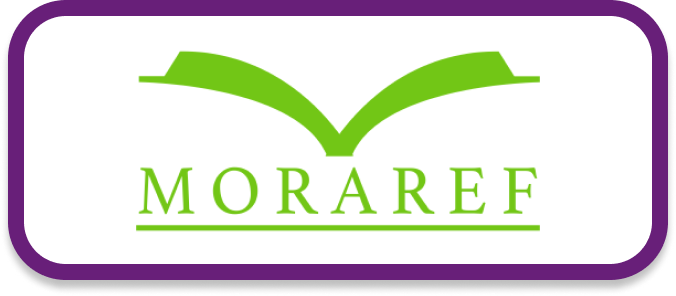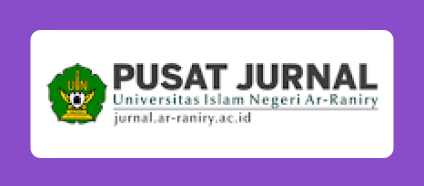STRATEGI KOMUNIKASI KEPALA SEKOLAH DALAM MENINGKATKAN EFEKTIVITAS MANAJEMEN SEKOLAH DI MTsN 3 LANGKAT
Abstract
To improve the effectiveness of management in schools, supervisors, principals, employees, and teachers are expected to have strategies in communicating. Communication strategy as a method, technique or way of communication works so that we can achieve the goals that have been set. The communication strategy is always together with the following things: 1) Who am I talking to; 2) What do I mean by speaking; 3) What message to convey to someone; 4) the way I convey a message to someone; and 5) How to measure the impact of the message. This research was carried out using an approach approach, it was based on the aim of describing the informants, namely supervisors, principals, employees, teachers and students. according to the existing social situation. The quality of the description in the form of written or spoken words of the behavior of the actors that can be observed in a social situation. In this context, the researcher tries to understand the principal's communication strategy in increasing the effectiveness of school management at MTs Negeri 3 Langkat.
Keywords
Full Text:
PDFReferences
Alfiansyah, M., et.al. (2020). “Kebijakan Internal Madrasah dalam Meningatkan Mutu Pendidikan di MI Nurul Ummah Kotagede Yogyakarta” MAGISTRA: Media Pengembangan Ilmu Pendidikan Dasar dan Keislaman, 11(1). https://www.publikasiilmiah.unwahas.ac.id/index.php/MAGISTRA/article/viewFile/3460/3192.
Ardianto, Elvianaro & Bambang Q-Anees. (2007). Philosophy of Communication Science. Bandung: Symbiosis Rekatama Media.
Arni, Muhammad. (2001). Organizational Communication. Jakarta: Earth Literacy.
Barrett, Richard. ( ). Vocational Business: Training, Developing and Motivating People. tt: t.p.
Buhler, Patricia. (2004). Alpha teach yourself: Management Skills in 24 Hours. Jakarta: Prenada.
Cangara, Hafiel. (2004). Introduction to Communication Science. Jakarta: RajaGrafindo Persada.
Cameron, S. Kim & Whetten, David A. (2007). Developing Management Skills. New Jersey: Pearson Education.
Daft, Richard. (2007). Management. Chicago: The Dryden Press.
Danim, Sudarwan. (2010). Educational Leadership (Genius Leadership (IQ+EQ), Ethics, Motivational Behavior and Myths). Bandung: Alfabeta.
Daryanto, M. H. (2001). Education Administration. Jakarta: Rineka Cipta.
Efendy, Onong, U. (2003). Science, Theory and Philosophy of Communication. Bandung: Image of Aditya Bakti.
Engkoswara. (2008). Fundamentals of Educational Administration. Jakarta: LPTK Dikti Development Project.
Gibson, et.al. (2000). Organization, Behavior, Structure, Processes, Thirteen Edition. Singapore: McGraw-Hill.
Grace, Jalaluddin. (2004). Communication Psychology. Bandung: Rosdakarya Teenagers.
Griffin, R. (2007). Business. New York: Prentice Hall.
Hamidi, Nur. (2015). “Communication Strategies for Outstanding Madrasah Heads in the Development of Islamic Primary Schools: Cases at MI Muhammadiyah Serangrejo Kulonprogo” Al-Bidayah: Jurnal Pendidikan Dasar Islam, 7(2).
Hardjana, M. Agus. (2003). Intrapersonal and Interpersonal Communication. Yogyakarta: Kanisius.
Hasibuan, Malayu, SP. (2004). Banking Fundamentals. Jakarta: Earth Literacy.
Hughes, Richard L., et.al. (2002). Leadership (Enchancing The Lessons of Experience). New York: McGraw-Hill Irwin.
Idochi, Anwar & Yayat Hidayat Amir. (2003). Educational Administration: Theories, Concepts & Issues. Bandung: UPI Postgraduate Program.
Komariah, A. (2004). Visionary Leadership towards Effective Schools. Jakarta: Bumi Aksara.
Kusuma, Ajeng Marga, et.al. (2016). “The Effect of Principal Leadership and Internal Communication on the Work Effectiveness of Pgri Wonoasri Vocational High School Teachers” Journal of Accounting and Education, 5(1).
Moerdiyanto. (2007). “Effective Indonesian School Management Through the Implementation of Total Quality Management” IMEC 2007 Proceedings 22-24 June 2007, Bayview Beach Resort, Penang, Malaysia.
Mohsin. (2015). “The Effect of Internal Communication and Principal Leadership on the Work Effectiveness of Teachers and Employees of SMP Negeri 1 Suruh Semarang Regency” Article, https: journal.unnes.ac.id, accessed on 3 May 2019.
Muhibbin, S. (2010). Educational Psychology (A New Approach). Bandung: Remaja Rosdakarya.
Muhammad, Arnie. (2007). Organizational Communication. Jakarta: Earth Literacy.
Muis, A, (2001). Communication. Bandung: Remaja Rosdakarya.
Mulyana, Deddy. (2001). Communication Studies. Bandung: Remaja Rosdakarya.
Mulyasa, E. (2003). School Based Management. Bandung: Remaja Rosdakarya.
Nurkolis. (2003). School-Based Management: Theory, Models, Applications. Jakarta: Gramedia Widia Sarana.
Pidarta. (2009). The Role of Principals in Elementary Education. Jakarta: Grasindo.
Purwanto, Joko. (2003). Business Communication, Second Edition. Jakarta: Erlangga.
Robbins, Stephen P. (1996). Organizational Behavior: Concept, Controversy, Application. Jakarta: PT. Prenhalindo.
Rodrigues, A. O. & Ferreira. (2015). “The Impact of Transactional and Transformational Leadership Style on Organizational Citizenship Behaviors” Psico-USF, Bragança Paulista, 20(3).
Shindy, Muhammad. (2017). “School Organizational Communication Case Study: UPT SMP 20 May Depok City” Journal of Design, 5(1).
Suprihatin, M. H., et.al. (2004). School Management. Semarang: UPT MKK Semarang State University.
Suryadi. (2006). Tips to Improve Organizational Empowerment. Jakarta: EDSA Mahkota.
Taylor, B.O. (1990). Case Studies in Effective Schools Research. Kendal/Hunt Publishing Company.
Vincent, Garpersz. (2002). Total Quality Management (TQM). Jakarta: Gramedia Pustaka Utama.
Wahab, H.S, Abd & Umiarso. (2011). Educational Leadership and Spiritual Intelligence. Yogyakarta: Ar- Ruzz Media.
Wahyudi. (2009). Principal Leadership in Learning Organizations. Bandung: Alfabeta.
Wiryanto. (2004). Introduction to Communication Science. Jakarta: Raja Grafindo Persada.
Yuniarsih, Tjutju. (2002). Organizational Management. Bandung: Bumi Siliwangi.
Zahnd, Mark. (1999). Integrated Urban Design: Urban Design Theory and Its Application. Yogyakarta: Kanisius.
DOI: http://dx.doi.org/10.22373/pjp.v10i3.12182
Refbacks
- There are currently no refbacks.
Copyright (c) 2022 Darno Darno, Mesiono Mesiono

This work is licensed under a Creative Commons Attribution-ShareAlike 4.0 International License.

























